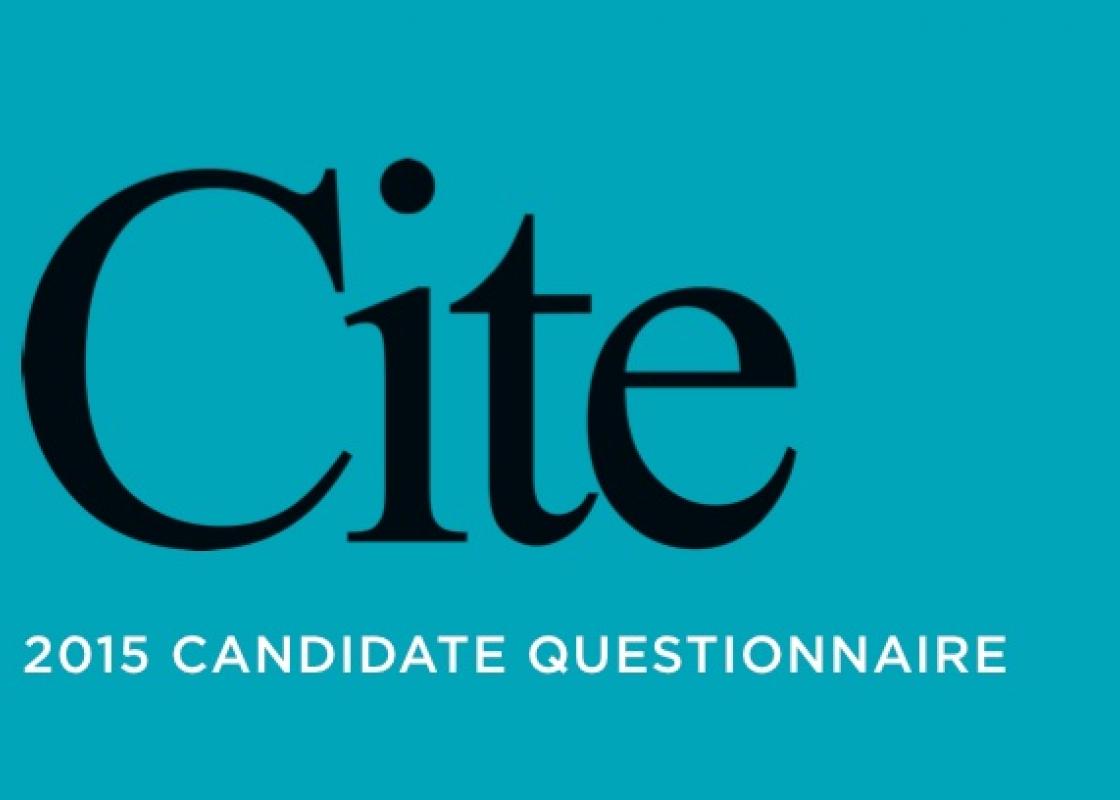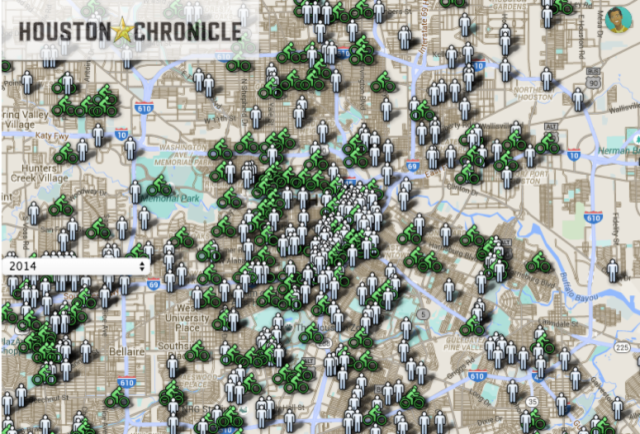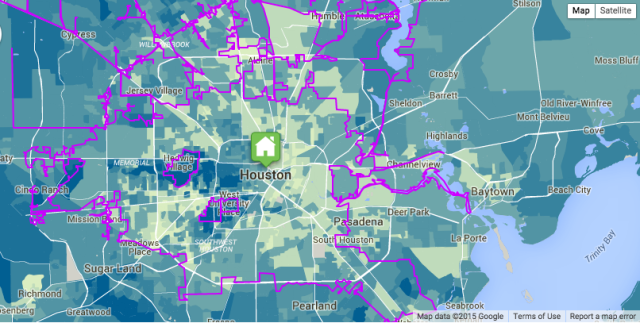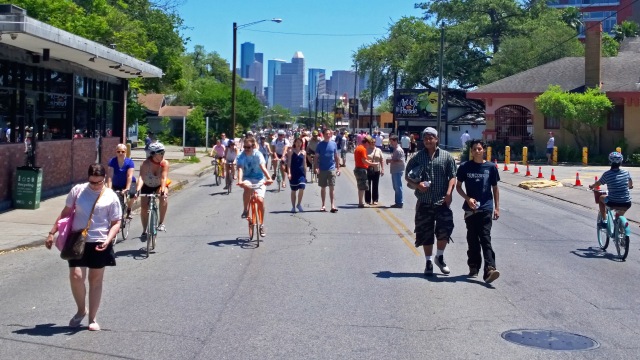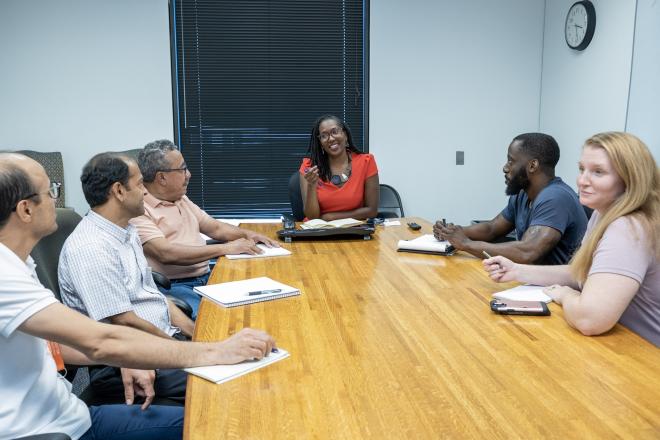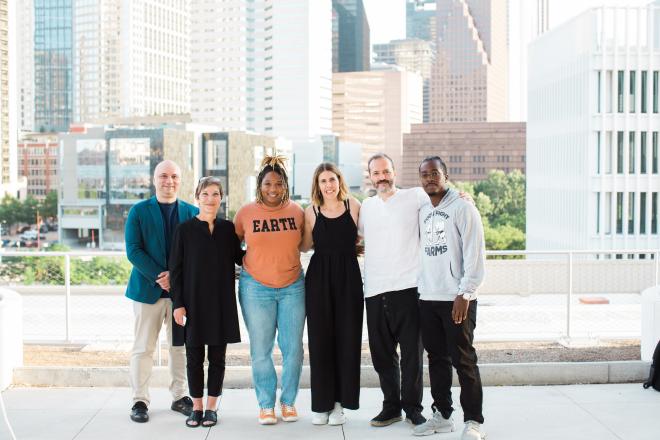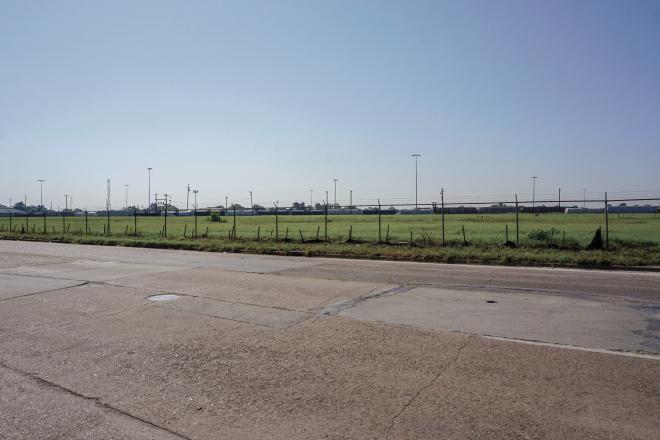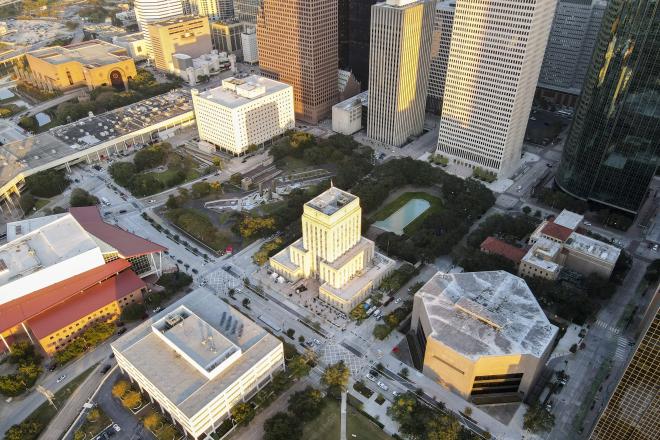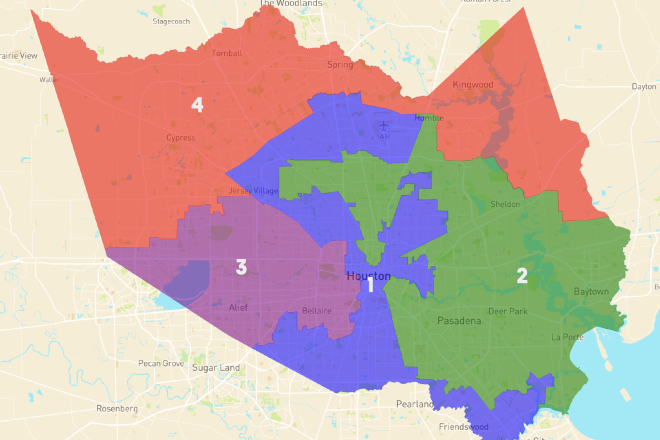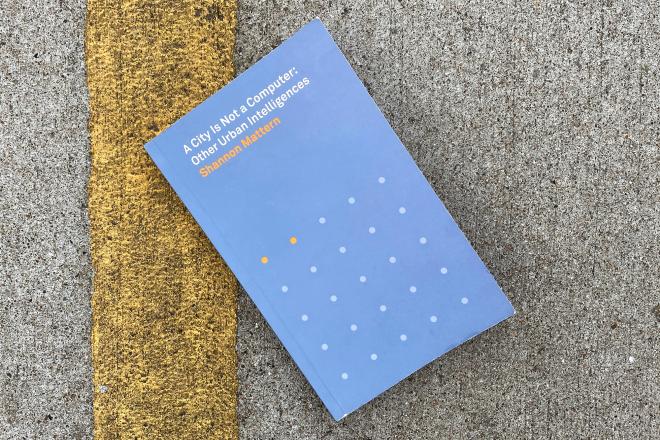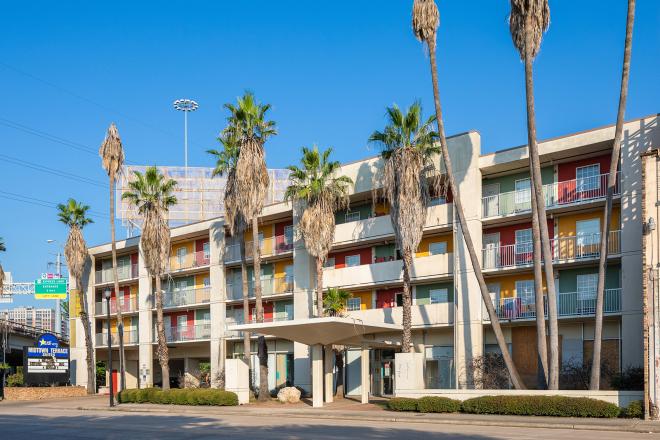In October, OffCite published this summary of the responses to a questionnaire sent to mayoral and at-large candidates. Sylvester Turner, who received the most votes for mayor but not an outright majority, was among the original respondents. We approached Bill King again after he secured a place in the runoff elections, and he responded. Today, as early voting begins, we share the complete responses, as provided by the candidates, below. Early voting runs through December 8; Election Day is December 12.
You can learn more about how the questions were compiled and read full .PDF versions here.
Please provide a brief biographical statement (i.e., education and employment background, any elected offices you have held and years held).
Sylvester Turner: I have served in the Texas House of Representatives [since] 1989, where I am currently Vice Chair of the Appropriations Committee and a member of the Legislative Budget Board. I was Speaker Pro Tem from 2003 to 2009. I chair the Harris County Legislative Delegation. I co-founded the law firm Barnes & Turner in 1983. For the past 18 years, I have owned American Title. I graduated from Klein High School, where I was valedictorian. I received a BA in Political Science from the University of Houston in 1977 and a JD from Harvard Law School in 1980.
Bill King: I grew [up] the son of a union pipefitter, and earned my undergraduate degree from the University of Houston --- becoming the first in my family to graduate from college. I went to U of H law school at night, and since then have spent my life building businesses, helping a wide range of local civic organizations, and speaking out on our toughest problems. I am running for Mayor because City Hall has taken its eye off the ball and failed to address the financial crisis that threatens our future, and I have the know-how and the political will to hit these problems head on --- and turn our city finances around.
Please identify any nonprofit, public, or private corporations of which you currently are or have been a member.
ST: Organizations: State Democratic Executive Committee, Democratic Party of Texas; Board member, Hester House; Board Member, Houston Metropolitan Ministries; Board Member, Northeast Area YMCA; Board Member, Acres Homes Citizens Chamber of Commerce; Coordinator, Acres Homes War Against Drugs Committee; Board Member, United Negro College Fund; Board Member, American Cancer Society; Member, Brookhollow Baptist Church; Member, Coalition for School Improvement
BK: Board positions: Memorial Hermann Foundation, Juvenile Diabetes Foundation, Galveston Bay Foundation, Firefighters Foundation of Houston, Crime Stoppers, the Methodist DeBakey Heart & Vascular Council, the HGAC Transportation Policy Council, Board of Regents for Texas Southern University, the HISD Foundation. Other: Capital Campaign Co-Chair, Interfaith Ministries Meals on Wheels; Chair, Houston-Galveston Area Council Hurricane Preparedness Task Force; Campaign Co-Chair, HISD bond initiative (2012), International Committee of the Houston Livestock Show and Rodeo
How often do you walk, bicycle, or use public transportation to travel in the City of Houston?
ST: I grew up using public transportation. My mother never learned to drive so we took the bus everywhere. I depended on public transportation to go shopping, I depended on it to get me to school (I was bused to Klein High School), I depended on it to get me to college and to the job that paid my college tuition and I depended on it to get me downtown where a young boy from Acres Homes began to dream about one day becoming successful and working in a tall building. Through hard work, my dream came true.
BK: I frequently walk for exercise. I have given up biking in the City because I feel it is too dangerous. When I was working downtown, I occasionally took the Metro rail to the medical center and to board meetings at Interfaith Ministries and Crime Stoppers.
How often do you use greenspaces or parks in the City, and which ones?
ST: I understand the importance of parks and green space to a community. For many years, Acres Homes had no public baseball fields. All it had was West Little York Park—29 acres of weeds. The city refused to upgrade it but agreed to maintain it if I could raise the money for improvements. With a combination of private donations and state grants, we built a jewel of a park which any neighborhood would be proud to have. Major League Baseball put an Urban Youth Academy there, where 2,000 kids from all over the city learn baseball and softball each year.
BK: I frequently walk in Memorial Park.
What is your top environmental concern for the City?
ST: Access to clean drinking water is a fundamental human need. It is essential that Houston meet the water needs of our growing population. A strong conservation strategy must be the centerpiece of any effective water plan. Mayors White and Parker took steps in this direction, including beginning to retrofit city buildings for water efficiency and establishing a water conservation task force, but more must be done. For example, toilet-replacement and retrofit programs are proven ways of reducing water use while voluntarily engaging residents.
BK: Top concern is water pollution from the City's wastewater treatment system. The City has been out of compliance with the Clean Water Act for decades and is currently negotiating with the [EPA] regarding a new consent agreement agreement. Second would [be] PM [particulate matter], primarily from older diesel engines.
What are your top concerns for the built environment for the City?
ST: A reliable and well-maintained transportation network is critical to Houston’s continued growth. Without adequate transportation, Houston businesses are at a competitive disadvantage—costing Houston jobs and economic opportunity—and Houstonians will continue to face the daily grind of traffic snarls, damage to their cars and unsafe roads. Our transportation network must be multi-modal, including better streets, more rail, an improved bus system and walkable communities.
BK: The principal obstacle to walking in Houston are our abysmally poor sidewalks. The City's current policy of making each homeowner responsible to maintain the sidewalk in front of their property is absurd. Workforce housing is also a top concern. I have proposed an "urban homestead" program that would encourage single family home ownership.
Mobility and Streets
What should the City do to support its residents’ ability to travel around the City?
ST: As mayor, I will fight for a world-class, comprehensive transportation system that includes not just improved roadways but buses, rail, bikes and pedestrian options to provide effective and affordable transportation to all areas of the city. It is crucial that any citywide transportation proposal includes usable transportation for every community, not just point-to-point transportation for commuters. I support TxDOT's plan to update I-45 and METRO's recent steps forward on its long-term BRT proposal. I also believe we must strike the right balance between emergency road repairs and larger, long-term improvements.
BK: I am encouraged by METRO's "Re-imagine" initiative, which finally puts quality bus service front and center among the agency's priorities. Due to the large geographic area covered by the City, bus service is necessarily an integral part of getting Houstonians around town. The City also needs to do a better job of managing the existing grid with tactics such as timing lights, intersection design, more aggressive incident management, accelerating street reconstruction projects and better regulation of lane closings.
Is there more the City can/should do to ensure its sidewalks are safe and accessible for all users, such as dedicating general funds, passing a bond, or creating a dedicated revenue stream for sidewalks?
ST: I believe the city should take more responsibility for sidewalk repairs. Leaving it up to property owners is not getting the job done. Yet, with current limitations on revenue, transferring responsibility to the city in the near term is not feasible. I support Mayor Parker's recent efforts to make it easier for property owners to maintain their sidewalks by providing access to contractors that have been vetted by the city and that have agreed to fixed rates for the repairs.
BK: The current system of making individual property owners responsible for sidewalks makes absolutely no sense. Currently, a sidewalk is only as good as the least-responsible property owner on the block. The City's much-heralded policy of waiving permit fees for sidewalk construction is an inadequate solution. Mobility for disabled people remains a concern. The City should take responsibility for sidewalk construction and repair, taking advantage of economies of scale to provide better infrastructure for a fraction of the price of the old system.
What would you do to improve the City’s existing Complete Streets program?
ST: The Complete Streets concept is an important shift for the city in terms of establishing a new standard for transportation development. The main obstacle to the effective implementation of Complete Streets is funding. Public-private partnerships are solutions for a few neighborhoods but relying exclusively on the market leaves other Houston communities behind. We need to bring all stakeholders to the table, including investors and residents, to develop an equitable solution for funding these improvements throughout the city.
BK: Complete Streets as they are currently defined in the ordinance can cost as much as 3x as much to build as a traditional roadway. Like many great new ideas, this is meant to achieve an admirable goal, but I don't think it's morally right to talk about "complete streets" when disadvantaged neighborhoods all over Houston just needs "streets." These new amenities always seem to make their way to wealthy neighborhoods first, while poorer neighborhoods get almost no attention whatsoever from City Hall.
What changes, if any, would you propose to the City’s current parking requirements?
ST: Our current parking standards were developed for the Houston of yesterday. We need to update them or the Houston of tomorrow. For Houston to become an urban, bike- and pedestrian-friendly city with effective transit options, we need to shift our thinking on a variety of development issues. Parking is one such example. With car-ownership in decline among young people and driving habits shifting throughout Houston, the expansive amounts of parking that were once necessary for commerce and growth are out-of-date today. We need to update our parking ordinances to reflect the kind of city we want Houston to be.
BK: I will study the feasibility of adding more flexibility to these requirements, depending upon the nature and location of the individual project, but have no specific proposals to change the requirements at this time. This was an issue I dealt with extensively in Kemah.
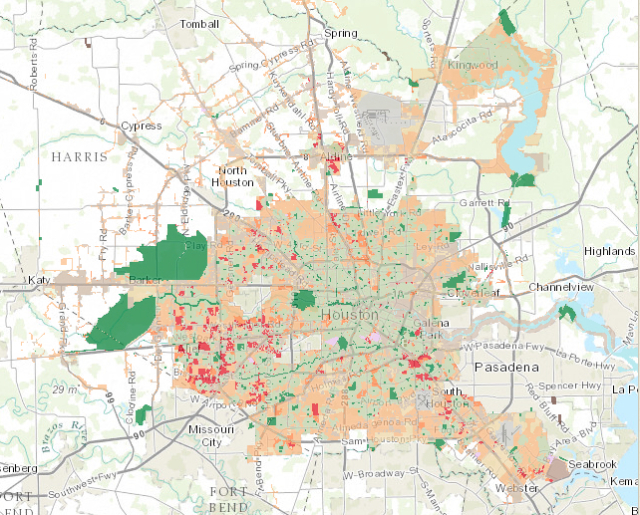 Houston 2015 Parkscore. Orange shows areas with no access to parks. Red shows areas of serious concern. Source: parkscore.tpl.org.
Houston 2015 Parkscore. Orange shows areas with no access to parks. Red shows areas of serious concern. Source: parkscore.tpl.org.
Parks, Libraries, and Community Centers
How should the City fund improvements to and excellence in parks, libraries, and other public buildings?
ST: I have long advocated for Houston’s public spaces. I supported the Bayou Greenways Initiative, Houston’s recent greenspace funding effort. This year, as Vice Chair of the Texas House Appropriations Committee, I secured $500,000 in funding for the Buffalo Soldiers Museum, $500,000 for the Houston African-American Museum, and $1.5 million for Emancipation Park. But more is needed. One idea that works elsewhere is a voluntary contribution program, where residents designate up to a certain amount from their property tax contribution to support specific projects. The city should also redouble its fundraising efforts from private sources.
BK: The City has to get its budget situation under control so that we can afford to pursue other priorities, like the libraries that enrich so many children's lives. Zero-based budgets, sensible overtime pay policy, and --- most importantly --- pension reform will stabilize the City's balance sheet and allow us to commit appropriate levels of funding to quality-of-life enhancements. The current administration has made some significant progress on the park system, particularly along Buffalo Bayou. I think we should set a stretch goal of finishing the linear parks project in the next administration.
What changes should the city make to reduce flooding?
ST: The city must work with Congress to fully fund the Brays Bayou project so that those critical bridge and channel modifications are completed as soon as possible. We must work closely with all stakeholders --- the U.S. Army Corps of Engineers, TxDOT, and the Flood Control District to develop and implement a comprehensive flood reduction strategy. Finally, we must embrace the most up-to-date technology so that we are aware of potential flood events well in advance, and we must improve communication with citizens so that they know of flood problems before they happen.
BK: First, we need to insist that the federal government fund and finish Project Brays asap. Second, we have to make building every possible cubic foot of detention possible a cultural discipline.
Affordability, Preservation, and Urban Development
What steps should the City take to encourage the development and preservation of affordable housing?
ST: I will pursue approaches including targeted development and homebuying assistance. Just as we offer incentives to developers building new housing downtown, we should use these same incentives to increase affordable housing in neighborhoods throughout the city. We should also revise the city code to allow increased construction of affordable housing. Current city requirements for details like parking and setbacks can hamper the construction of new affordable housing. Finally, I will work with neighborhood development groups, which have already considered these issues and developed targeted proposals to address them.
BK: I have proposed a "urban homestead" program that would encourage SFR home ownership in economically depressed neighborhoods, using the LARA program and CDBG funds.
Are there approaches to affordable housing siting and development that you champion?
ST: The recent Supreme Court ruling on affordable housing will have major impacts on development siting, with the result being a greater number of economically-mixed neighborhoods. This mode of housing integration has demonstrated benefits, but it may also have unintended consequences, including disinvestment in established lower-income neighborhoods. City leadership must be thoughtful about affordable housing placement to ensure that new, mixed-income development does not come at the expense of development in existing neighborhoods.
BK: Mayor White appointed me as chief counsel for the proposed LARA program (Land Assemblage Redevelopment Authority) in 2009, and my team and I brought that program into existence. This program consolidates seized real estate assets and uses the proceeds to fund projects important to the community, including affordable housing developments. Afterwards, Mayor White wrote a letter expressing his hope that my “commitment to this (revitalization) is not at an end, because there is still much to do to put flesh on the bones of (my) recommendations.” I intend to carry on this important work as mayor.
How should the City balance economic development with historic preservation?
ST: Historic preservation is an important tool in a city as storied and significant as Houston. Done right, historic preservation aligns with a property’s most productive use and makes the surrounding area a more valuable place to be. Homebuyers are investing in a neighborhood as much as in an individual home. To that end, we should consider design guidelines to increase predictability for buyers. Guidelines already exist for neighborhoods including the old Sixth Ward and Germantown, but not for neighborhoods including the Heights. Expanding this solution might make it easier for families to invest in the city.
BK: There is no magic formula on what the balance should be. In large measure it should be driven by what individual neighborhoods want. However, I am also a strong advocate for individual property rights and historic preservation should not trample on those rights.
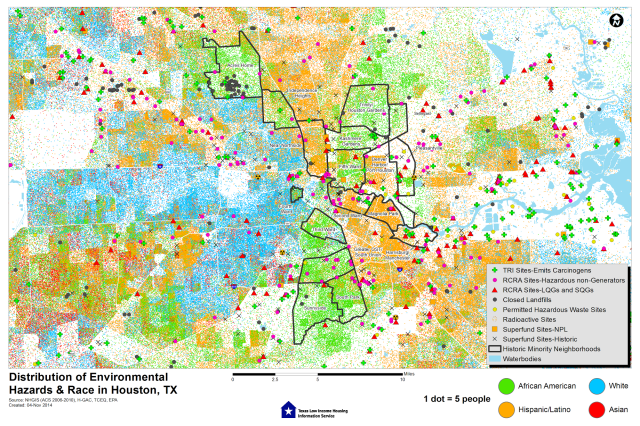 Distribution of Environmental Hazards and Race in Houston. Source: Texas Low Income Housing Information Service
Distribution of Environmental Hazards and Race in Houston. Source: Texas Low Income Housing Information Service
Environment
What should the City do to reverse the pattern of siting landfills, recycling centers, and wastewater treatment facilities in low-income and minority neighborhoods?
ST: I am proud of my legislative record fighting for environmental justice but more must be done. An important first step is to properly inventory all hazardous incompatible land uses in residential neighborhoods so that they can be monitored and the appropriate agencies encouraged to do the appropriate remediation. I also support bringing together environmental experts, EPA representatives and community leaders to recommend actions that the city should take to address this issue.
BK: Obviously no one wants these kinds of facilities in their neighborhoods. To the maximum extent possible they would be located [away] from neighborhoods and sensitive land uses like schools and churches. The City also needs to pursue a policy of building buffer zones around these types of uses.
What measures within the City’s authority and its influence on regional planning agencies should be pursued to reduce air pollution?
ST: Our municipal efficiency efforts have been effective in substantially reducing energy consumption in city buildings, as well as in reducing the emissions of city vehicle fleets. The city is currently moving toward zero-emissions for the city fleet. This is an example of the type of commonsense effort that I will continue as mayor. Long-term investments in our transit infrastructure, the establishment of community-wide efficiency goals, and the establishment of incentives for efficient behavior such as switching to electric vehicles are additional air quality improvement solutions that I would like to explore as mayor.
BK: Our region has done a pretty good job on ozone (NOX and VOC). I believe the most serious challenge now is particulate matter. Older diesel engines are the source of most of this pollution. I think initiatives like the idling ordinance are important, although there appears to be virtually no enforcement of the ordinance. I also favor moving all heavy City vehicles to natural gas.
What steps should the City take to eliminate trash, bacteria, and other chemical pollutants in the bayous that run through the City? What steps should the City take to enforce applicable prohibitions against such pollution by violators?
ST: One commonsense step we can take to reduce trash and chemicals in our waterways is to restrict single-use plastic bags. Besides being highly visible and contributing to an appearance of urban blight, these bags clog drainage systems, leading to flooding and increasing the standing water in which mosquitos breed. They also release harmful chemicals as they degrade. Cities across Texas have enacted successful bag restrictions. Given Houston’s flooding issues, our concerns about mosquito-borne illnesses like West Nile, and our key position within the watershed, strong plastic bag restrictions should be on the table.
BK: The City needs to start by stopping its own pollution. As mentioned above, the City's wastewater treatment system has been out of compliance with the Clean Water Act for decades and has been negotiating with the EPA over a new consent agreement. I would expect to conclude these negotiations asap after taking office and try to get this problem behind us once and for all.
Should the Mayor’s Office of Sustainability be terminated, renewed, or altered? Why or why not?
ST: The Office of Sustainability should be renewed. Disparate issues such as environmental quality, energy efficiency, energy alternatives, land use and city planning are, in fact, closely interrelated. The Office of Sustainability avoids siloed policy-making and instead allows for an efficient, cohesive approach to these issues.
BK: I do not have an opinion on the cost effectiveness of the office at this time. I would expect to subject it to the same zero based budgeting process as all of the other departments.
Community Engagement
This year the City entered into a three-year partnership with Cigna to co-sponsor Sunday Streets. Have you attended a Sunday Streets? Should the City expand Sunday Streets and, if so, how?
ST: I have attended Sunday Streets and would be eager to see the program expanded. In addition to its public health aspects, the program is a boon for local businesses and a great way to boost civic pride and engagement. I hope that as Sunday Streets goes forward, it will take place in locations that truly reflect the rich diversity of our city. Houston is the most diverse city in the country and that diversity is among our greatest strengths. Sunday Streets has the potential to highlight excellence in all of our neighborhoods.
BK: I have attended Sunday Street event. Whether it should be extended will depend on a review of the level of participation.
Should the City empower civic associations, Super Neighborhoods, or other neighborhood groups to reimagine their streets through community-driven initiatives?
ST: Yes, certainly. People who live in neighborhoods have the best knowledge of both the challenges those neighborhoods face and the solutions that are likely to be effective. Many of the development ideas that we’re looking to see citywide --- from proposals for mixed use development near transit lines, to proposals for industrial conversions – have already been created by Houston’s various neighborhood groups. As mayor, I will be committed to bringing neighborhood voices to the table.
BK: I strongly feel that our city government is too centralized. The last two mayors have essentially gutted the Super Neighborhood programs. Currently only about half are even active. I am committed to pushing down more authority, responsibility and resources to the neighborhoods to have great control over what happens in their areas.


